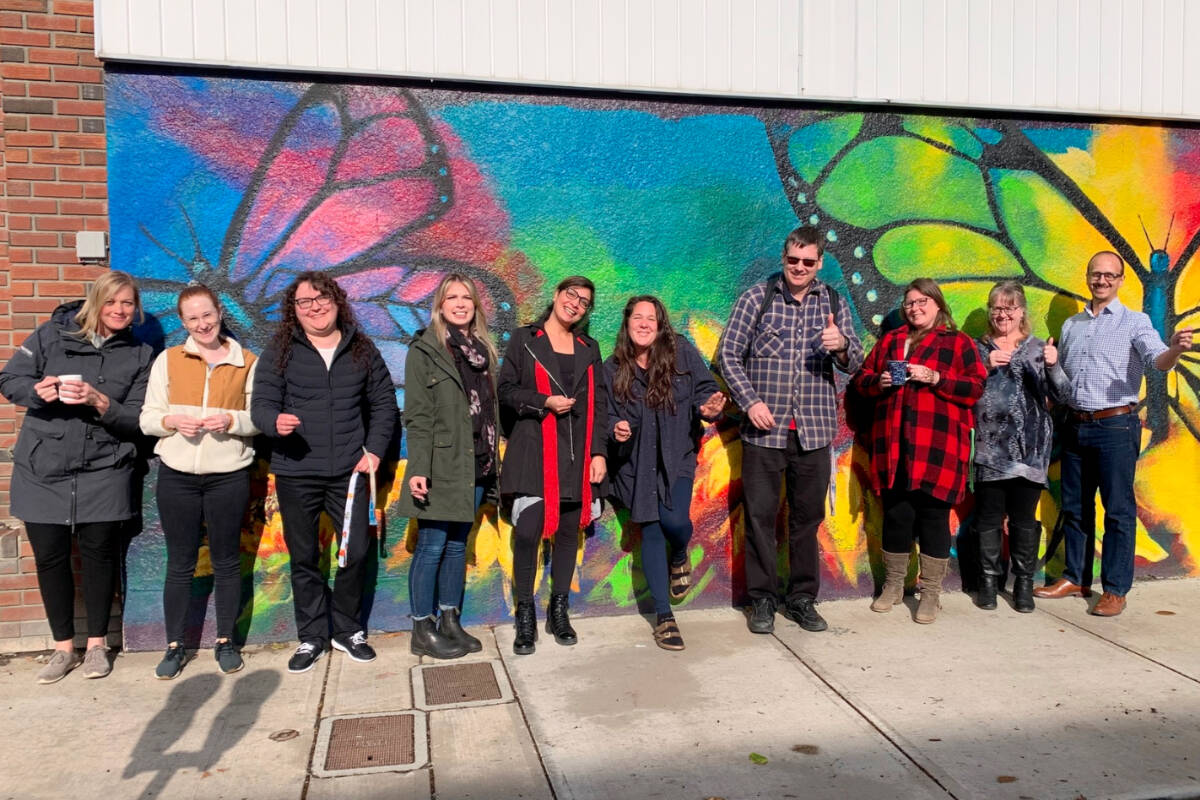Vital Signs Report shows physical health and mental wellbeing of locals.

Some members of the CMHA Vernon team in October 2022.
The New Year has begun, and many people use this time to reflect on their health and habits to implement new year’s resolutions. The North Okanagan Vital Signs report, presented by the Community Foundation North Okanagan (CFNO), has compiled local research about the physical health and mental wellbeing of the people living here in our communities. A few valuable local resources are offered throughout this article.
The data shows that while most residents are generally healthy, North Okanaganers drink and smoke more than the provincial average, which are both linked to adverse health outcomes. The rate of heavy drinking in the Okanagan is 23 percent, which is five percentage points higher than the 18 percent reported across British Columbia. In the North Okanagan, 14 percent of people ages 12 years and older report daily or occasional smoking. This is on par with Interior Health, but above the provincial rate of 11 percent.
For those thinking about reducing how much you drink or want to quit smoking the province offers these resources to assist you in getting started www.helpstartshere.gov.bc.ca and www.quitnow.ca.
The prevalence of mood and anxiety disorders, along with depression are higher than both the provincial average and the Interior Health average. Vernon is reporting 37.2 percent of people with mood & anxiety disorders, and 32.5 percent of people report having depression.
As part of the research for the Vital Signs report, a local survey was sent out across the North Okanagan, and one respondent commented, “I suffered from anxiety during the summer of Covid isolation and Okanagan/Interior forest fires. I learned about the [CMHA] Bounce Back program through a friend, and it got me back on track.”
BounceBack is a free program offered through the Canadian Mental Health Association (CMHA). If you would like to find out whether the BounceBack program is right for you, visit: www.bouncebackbc.ca.
Sixteen percent of survey respondents reported they do not have a family doctor but would like to find one. “Despite living in Vernon, the only family doctor we could get is in the Mission, in Kelowna. A very, very long drive,” said one local survey respondent. This issue will be increasingly pressing as the senior population is expected to grow by 5.4 percent by 2026. The Vital Signs report also shows that the available Assisted Living, Long-term Care, and Short Stay beds available to seniors has fallen from 756 in 2019 down to 697 in 2022.
Seniors –65 and greater– represent 27 percent of the North Okanagan’s total population. The NexusBC Community Resource Centre offers the Better At Home (Age 65+) program that helps older adults with housekeeping, grocery shopping, social activities and more so that they can continue to live independently in their own homes. Please visit: www.nexusbc.ca/programs/better-at-home for more information.
CFNO proudly participates in the national Vital Signs program to keep residents of the North Okanagan connected over a shared understanding of the trends and changes affecting the quality of life in this region. Programs such as Vital Signs, with its local data and community-driven knowledge, help CFNO make bolder and better decisions that ensure everyone has the support and opportunity to flourish.
Read the Vital Signs report now: www.cfno.org/vital-signs
The data collected for the North Okanagan’s Vital Signs report represents residents living in Armstrong, Coldstream, Enderby, Lumby, Spallumcheen, Reserves (Okanagan 1, Enderby 2, Priest’s Valley 6, Harris 3), Regional District North of Okanagan electoral areas, and Vernon.
